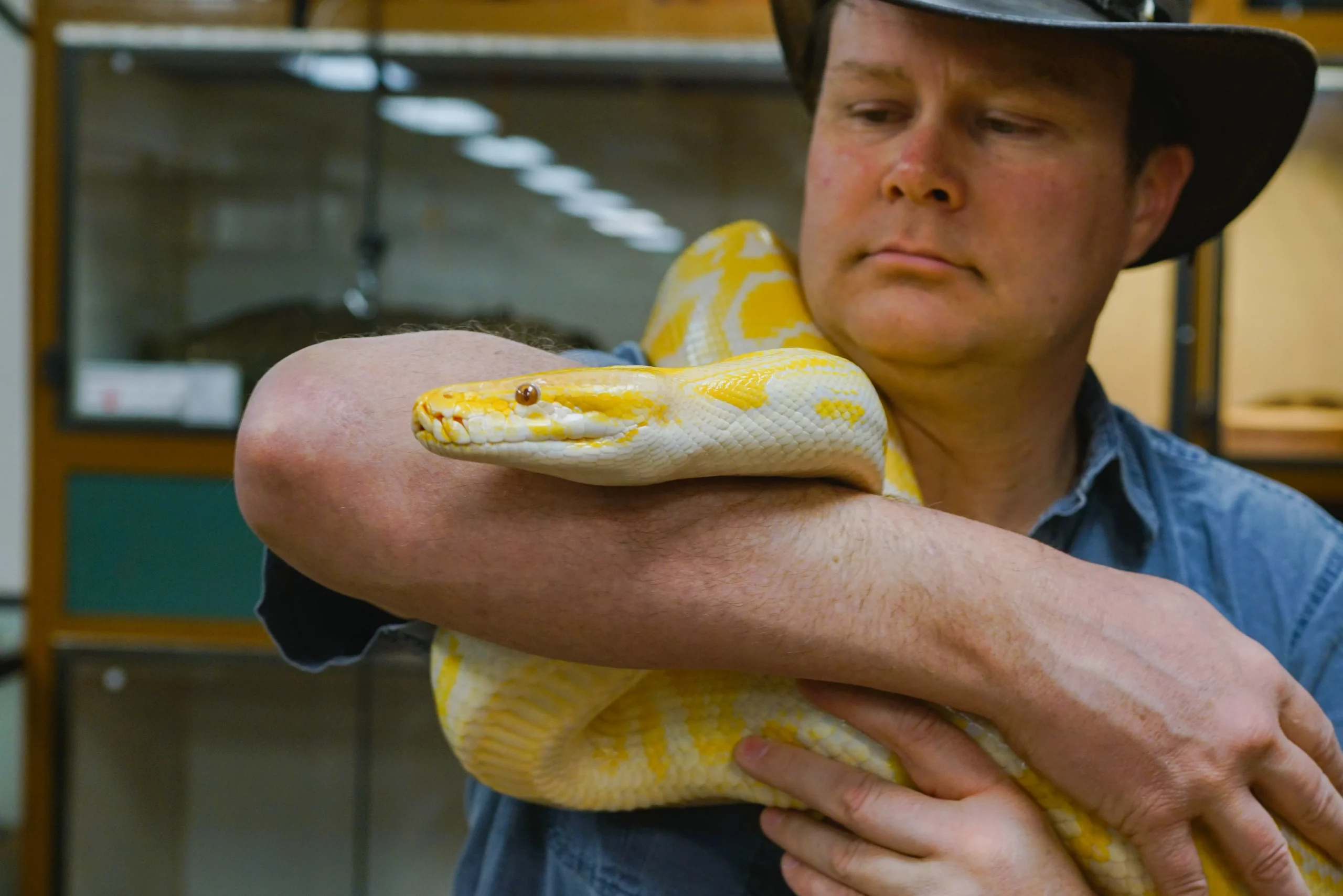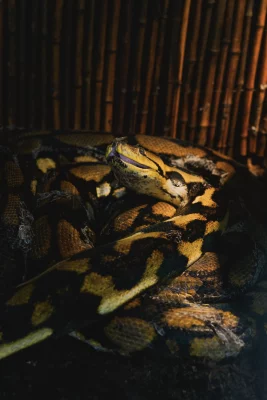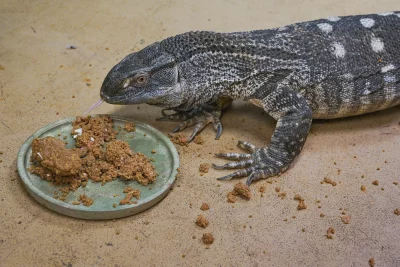
Scales and Tails: Do Snakes Deserve their Deadly Reputation?
Community
From the biblical serpent inciting original sin to the petrifying Basilisk in Harry Potter and the Chamber of Secrets, pop culture positions snakes as sly instigators of humanity’s falls from grace rather than innocent bystanders. It’s no wonder decades of villain-centric depictions cemented chilling stereotypes of snakes as stone-cold villains rather than shy beings employing self-defense tactics.
Yet ever since childhood fascination unpacked the unlikely brilliance behind reptilian life, Shane Richins has rejected stereotypes of “scary” animals. Today, as proprietor of the Utah reptile sanctuary Scales & Tails, he steadfastly counters myths misrepresenting snakes as heartless killers.
“People mistake snakes’ self-preservation reactions for malicious intentions to harm humans,” Richins explains. “But even species boasting exceptional venom rarely attack absent extreme provocation.”

In fact, by prioritizing dramatic defensive displays like suddenly darting tongues, swelling hoods and thrashing tails, snakes seek to conserve precious energy while avoiding damage risked by direct combat. According to the Scales & Tails’ founder, even the legendary lethality of cobras and mambas primarily evolved to steer predators away without wasting biological resources on futile fights. “Once people look past surface scares to grasp that snakes don’t yearn to randomly bite bystanders, their true charm and brilliance shines through,” Richins says.
“The key thing is [to] not expect snakes to ever ‘love’ you back in the way a dog, cat or even a bird may demonstrate affection.”
Richins dedicates his days to dissolving the deepest anxious falsehoods by showcasing snakes’ calmer realities—not blood pressure-spiking fictions. At his family-founded sanctuary’s hands-on educational encounters, mythbusting tours position rational understanding as the ultimate antidote for irrational anxiety churned up by Hollywood horror flicks. Carefully controlled interactions allow once snake-fearing visitors to discover snakes as thinking, feeling beings capable of communing calmly when shown basic respect.
So how do snakes stack up as pets? For busy professionals, creative dwellers and gentle souls preferring subtle stimuli over loud voices, snakes could prove to be perfect pets. Reptilian roomies boast a big impact and resilience without demanding big maintenance like daily walks or incessant attention from owners. Simply appreciate these marvels of muscle and magic for their ancient evolutionary excellence rather than expected affection. Cultivating understanding, not unreasonable anthropomorphism, reveals the true charm behind scaly squamates.
Though snakes may not excitedly greet owners at the door like dogs, they can provide snuggly satisfaction through select cuddle sessions. Ball pythons in particular become incredibly relaxed when exposed to a human’s higher body heat, often cozily wrapping in loose coils to share the warmth while feeling protected. Just don’t expect constant climbs into your lap—give snakes space, and they will periodically reciprocate affection.
“Once people look past surface scares to grasp that snakes don’t yearn to randomly bite bystanders, their true charm and brilliance shines through.”

“The key thing is [to] not expect snakes to ever ‘love’ you back in the way a dog, cat or even a bird may demonstrate affection,” says Richins. “Reptiles simply lack the emotional capacity for bonding or feelings like love, at least how humans recognize them.”
Overall, even sizable snakes edge out high-energy dogs and aloof felines regarding ease of care alone, thanks to drastically lower demands for living space, direct bonded attention and specialized nutrition. Trade noisy chaos for clean calm companionship selectively offered on reptilian terms rather than according to neediness demanding ‘round-the-clock doting.
Ultimately, Richins’ myth-busting mission aims not only to dissolve irrational fears about snakes, but to spotlight the scaly splendor long-hidden behind chilling cultural stigma. Through Scales & Tails’ judgment-free, guided interactions, visitors discover that their slithering neighbors aren’t malevolent bloodthirsty horrors, but brilliant beings shaped by 140 million years of evolutionary magic.
Trade misconceptions for deeper wisdom about Earth’s most unfairly feared yet wondrous animal kingdom designs. Emerge ready to defend the innocence of reptile refugees rather than recoil from their human-assigned deadly reputations built on false pretenses. If you’re interested in learning more about Shane Richins and Scales & Tails, visit their website scalesandtailsutah.com.
Read more pet features here:
Charming Rodentia: Scrat Pack Rattery’s Tiny Best Friends
How to Become Friends with a Bird: Advice from Traci’s Parrots 4U Founder Traci Afana
